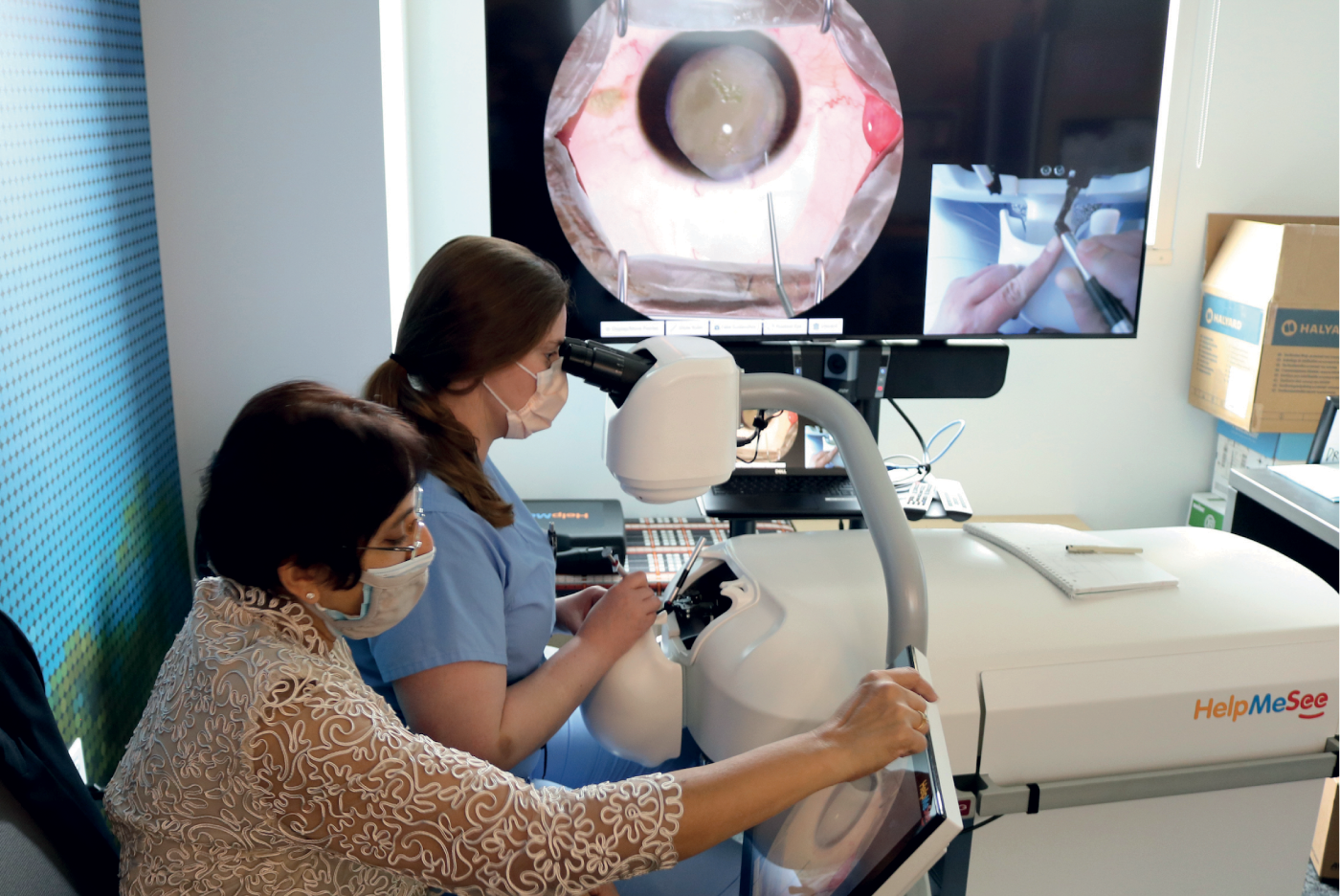
Global ophthalmology, an area of global health that is dedicated to improving vision, reducing blindness, building sustainable eye care delivery systems, and achieving equity in vision health worldwide (1), requires certain skills that can be outside the scope of traditional residency programs with bountiful resources. The examination, diagnosis, and management of eye-related conditions in the developing world, where resources such as diagnostic imaging and treatment options are limited, is more complex than the routine practices taught in residency. Additionally, Manual Small Incision Cataract Surgery (MSICS) is a skillset that, if untrained, is complicated to perform, especially in an unfamiliar and understocked OR.
There are several innovative approaches to training and honing surgical skills for MSICS. One way for early- and mid-career ophthalmologists and even experienced ophthalmologists who are considering global humanitarian work to learn or brush up on their MSICS skillset is with simulation-based training. For early-career ophthalmologists, this training model provides a low-stress environment to practice techniques, develop proficiency, and gain confidence before performing procedures on patients. For mid-career ophthalmologists, simulation-based training can help expand their skillset or refresh their knowledge, offering a unique opportunity for professional growth.
Lastly, for experienced ophthalmologists, a refresher course on MSICS can help them focus on how to address the needs of patients in underserved communities, where phacoemulsification is not the standard of care.
Regardless of an ophthalmologists’ current skillset, simulation-based training can accelerate the learning curve to ensure preparedness for the complex clinical scenarios that are often encountered in low-resource settings.
Training with HelpMeSee
One notable technology driving innovation in simulation-based cataract surgery training is the HelpMeSee Eye Surgery Simulator, which provides comprehensive training modules across all aspects of MSICS, from mastering incision techniques to navigating intraocular maneuvers. The simulator offers a visually realistic and immersive training experience that replicates the intricacies of the ocular surgical field with remarkable fidelity. During training, seasoned instructors work alongside the user to provide feedback and ensure skills development. In this way, the training program can be tailored to the needs of diverse learners, from novice to seasoned ophthalmologists.
The use of standardized methodology on the HelpMeSee Eye Surgery Simulator has been shown to minimize the learning curve, decrease intraoperative complications and surgical errors by about 50% in certain steps, and improve patient safety (2,3). This demonstrates the efficacy of simulationbased training in preparing cataract specialists for real-life scenarios.
HelpMeSee has provided simulationbased training for more than 2,500 aspiring cataract specialists.
Conclusion
Simulation-based training levels the playing field in surgical education by delivering standardized and reproducible surgical instruction, regardless of the location. Ophthalmologists at every stage of their careers can feel empowered by their training to deliver high-quality care in any setting. Whether preparing for their first MSICS case or embarking on a global ophthalmology outreach trip, simulationbased training empowers ophthalmologists to improve their surgical skills in MSICS, ultimately improving patient outcomes and quality of life around the world. Learn more at helpmesee.org.
References
- LB Williams et al., “Impact and trends in global health,” Curr Ophthalmol Rep., 8,136 (2020).
- VC Lansingh et al., “How many cataract surgeries does it take to be a good surgeon?” Revista Mexicana de Ophthalmologia (Eng)., 2023. DOI: 10.5005/rmo-11013-0026.
- AG Nair et al., “Assessment of a high-fidelity, virtual reality-based, manual small-incision cataract surgery simulator: A face and content validity study,” Indian J Ophthalmol. 70, 4010 (2022).
